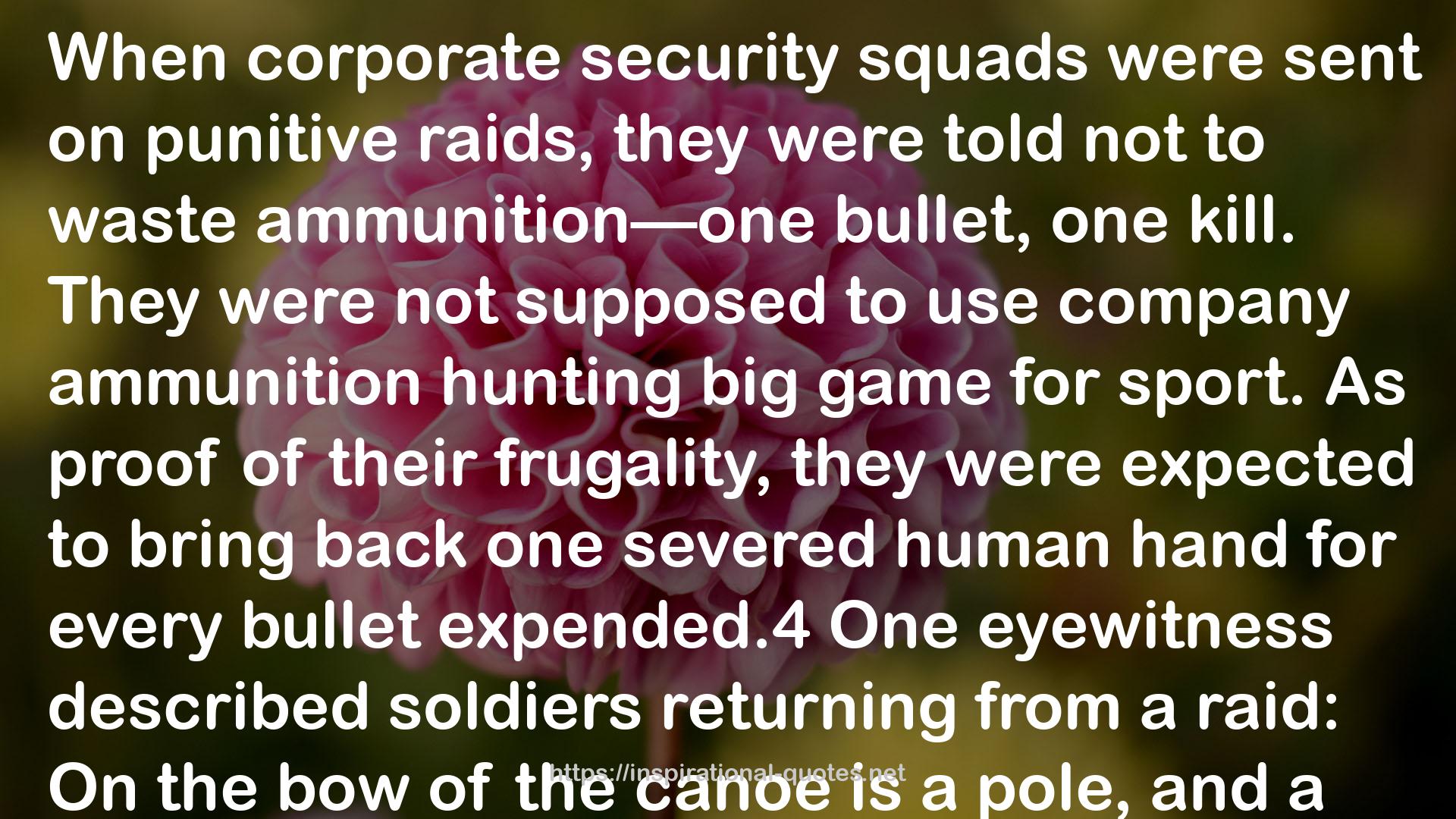" When corporate security squads were sent on punitive raids, they were told not to waste ammunition—one bullet, one kill. They were not supposed to use company ammunition hunting big game for sport. As proof of their frugality, they were expected to bring back one severed human hand for every bullet expended.4 One eyewitness described soldiers returning from a raid: On the bow of the canoe is a pole, and a bundle of something on it. These are the hands (right hands) of sixteen warriors they have slain. “Warriors?” Don’t you see among them the hands of little children and girls? I have seen them. I have seen where the trophy has been cut off, while the poor heart beat strongly enough to shoot the blood from the cut arteries at a distance of fully four feet.5 Severed hands became a kind of currency—proof that orders were being obeyed. A basket of smoked hands covered any shortfall in production, and if there was no rubber to be had, the Free State’s security forces, the Force Publique, would go out to collect a quota of hands instead. Natives quickly learned that willingly sacrificing a hand might save their life. And not just hands. After one commander grumbled that his men were shooting only women and children, his soldiers returned from the next raid with a basket of penises. "
― , The Great Big Book of Horrible Things: The Definitive Chronicle of History's 100 Worst Atrocities
